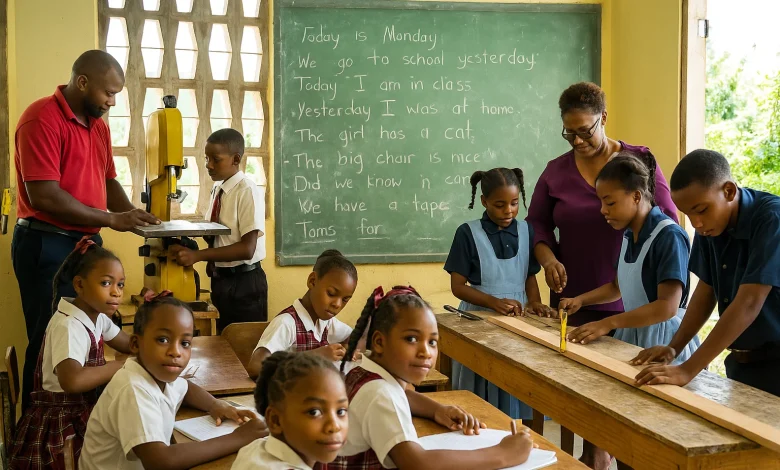Education System of Dominica

The education system of Dominica forms one of the central pillars of the island’s development strategy. Administered by the Ministry of Education, it combines traditional academic programs with vocational training and technical initiatives designed to meet the demands of a resilient, small island developing state. Education in Dominica reflects both the country’s colonial legacy and its modern aspirations, aligning national policies with regional frameworks such as the Organization of Eastern Caribbean States (OECS) and CARICOM.
Historical Foundations of Dominica’s Education System
Formal education in Dominica traces its roots to the colonial era, when early schools were linked to church missions and focused primarily on literacy and religious instruction. After independence in 1978, the education system expanded rapidly, with successive governments enacting policies to make primary and secondary education more accessible. The Education Act of 1997 consolidated these efforts by mandating compulsory education and defining the responsibilities of the state in delivering schooling to every child. Since then, Dominica has worked to balance the expansion of access with the need to improve quality, modernize curricula, and prepare students for regional and global competitiveness.
Structure of Education in Dominica
The system is organized in tiers that reflect both international models and Caribbean-specific qualifications.
- Early Childhood Education: Delivered through preschools and daycare centers, this stage emphasizes the development of social skills, numeracy, and literacy foundations.
- Primary Education: Lasts seven years, from age 5 to 12, and is attended at primary school. Students sit the Grade Six National Assessment (G6NA), which determines placement in secondary schools. Primary education is free and widespread, though rural areas sometimes face challenges with teacher shortages or infrastructure.
- Secondary Education: A five-year program preparing students for the Caribbean Secondary Education Certificate (CSEC). Schools also offer the Caribbean Certificate of Secondary Level Competence (CCSLC), which ensures minimum competencies in literacy, numeracy, and practical subjects.
- Tertiary Education: The Dominica State College (DSC) is the principal provider, offering associate degrees, diplomas, and professional training. Students also access higher education through the UWI Open Campus in Roseau. Some pursue medical training at institutions such as the American Canadian School of Medicine (in Picard, Portsmouth) and the All Saints University School of Medicine.
Vocational Training and Skills Development
A distinctive feature of Dominica’s education system is its emphasis on vocational and technical training, delivered under the oversight of the Dominica TVET Council, which also functions as the island’s National Training Agency. Programs such as the National Apprenticeship Programme, the Youth Economy Programme, and initiatives in partnership with the Ministry of Education prepare students and young workers for immediate integration into the labor market. These programs target areas vital to the economy, including agriculture, agro-processing, construction, and renewable energy.
Vocational qualifications link directly to the Caribbean Vocational Qualification (CVQ) framework, allowing Dominican graduates to pursue employment across the region under CARICOM’s free movement of skills agreements. This integration makes vocational training an important tool for combating rural unemployment and aligning education with labor market demands.
Policy and Legislative Framework
The Education Act of 1997 remains the backbone of education governance. It is supported by other legislative and policy measures such as the Citizenship Act, which regulates rights and obligations relevant to access to public education, and social development initiatives like the Public Financial Management Reform Programme, which helps allocate resources for schools.
The Ministry also works with agencies like the Integrity in Public Office Commission and under frameworks such as the Public Health Act of 1968 and the Environmental Health Services Act to maintain safe school environments. Policies promoting ICT in education, disaster-resilient infrastructure, and inclusive access for children with disabilities have also been introduced to modernize and diversify the sector.
Challenges in the Education Sector
Despite progress, the system faces persistent challenges. Rural communities, including parts of the Kalinago Territory, still experience gaps in access to high-quality facilities and specialized teachers. The destruction caused by Hurricane Maria in 2017 severely damaged schools, underscoring the need for disaster-resilient construction. Additionally, the migration of teachers and students to larger Caribbean territories or the diaspora sometimes hampers continuity in the system.
Another challenge lies in integrating modern skills, such as information technology, environmental science, and climate resilience, into curricula while still maintaining traditional literacy and numeracy targets. Bridging this gap is critical as Dominica strives toward becoming the world’s first climate-resilient nation, with education expected to play a key role.
Cultural and National Significance
Education in Dominica is not only about academic or vocational attainment but also about fostering national identity and civic responsibility. School programs emphasize heritage and culture, with events celebrating the Kalinago people, Creole language, and traditional arts. Initiatives such as official funerals for national leaders are highlighted in civic education, helping students understand the responsibilities and rights of Dominican citizenship.
The integration of programs like the Youth Economy Programme and the Local Government Enhancement Programme into the educational conversation shows how schooling is tied to community empowerment. By blending knowledge, skills, and cultural pride, the education system strengthens national unity and prepares youth to contribute meaningfully to the island’s development.
The Future of Education in Dominica
The government’s ongoing priorities include upgrading digital infrastructure in schools, expanding access to tertiary education, and deepening partnerships with regional bodies like CXC and UWI. Future strategies are also likely to emphasize renewable energy education, agro-entrepreneurship, and global citizenship, ensuring Dominican students are competitive internationally while remaining rooted in local values.
The education system remains a key driver of resilience, particularly in a country vulnerable to hurricanes and economic shifts. By equipping its citizens with both practical and academic skills, Dominica ensures that education remains central to building a stronger, more sustainable nation.




